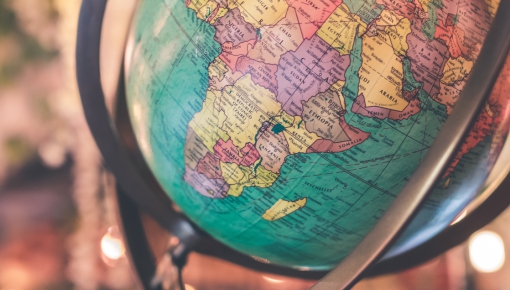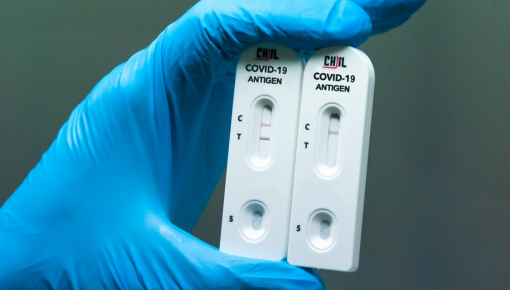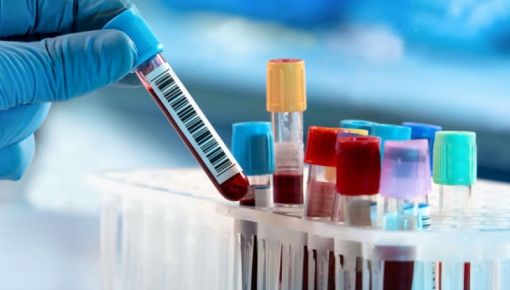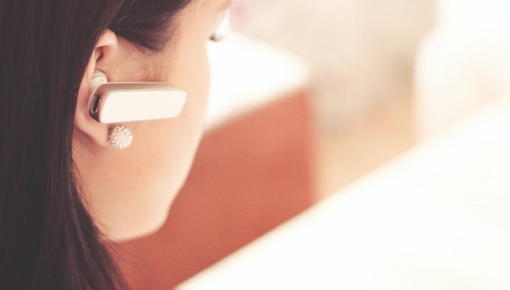Dealing with an Earthquake in the Time of COVID-19
Search Result
About Us
Highlights
Blog
Highlights
We're going through a difficult time as we deal with the impacts of the 2019 (COVID-19) pandemic of coronavirus disease. COVID-19 is probably will be with us for a period, which is why we must plan for other disasters that will impact our societies a little differently during this pandemic. It is hard to think about the possibility of having other undesired circumstances such as floods and wildfires; however, it is better to be prepared for what we may come up against.
An earthquake is a rapid, intense shaking of the ground caused by rocks moving deep below the earth's surface. Fires, tsunamis, landslides or avalanches can be triggered by earthquakes, as also seen during the earthquake in İzmir.
On November 2, people living in Izmir/Turkey have faced a 6.9 magnitude earthquake that originated from the Aegean Sea. Unfortunately, it caused 114 people to lost their lives, more than 800 people injured and thousands of people evacuated from their houses. Without people even being able to heal their wounds, the earthquake left many questions that people need to face.
.
So what is the link between COVID-19 and Earthquake?
The occurrence of a sudden shock (such as an earthquake) in addition to the ongoing strain that COVID-19 presents could bring an otherwise stable emergency response past its coping capacity, causing an increase in the infection rates and associated. After a destructive earthquake as happened in Izmir, which arrives without significant advance warning, unlike many other natural hazards, the damage caused by seismic events on the residential building stock often requires housing hundreds or thousands of inhabitants in temporary shelters.
Moreover, the need to treat the injured in the aftermath of an earthquake could cause an excessive influx of people in healthcare facilities and a temporary disregard for rigorous safety measures. In such conditions, social distancing might be impractical, and new clusters of virus spread may arise. It is thus important to account for the possible occurrence of large natural hazards during the pandemic and develop response plans that consider both the constraints due to the pandemic and the additional requirements caused by the natural hazard.
Epidemic outbreaks following the occurrence of natural hazards are relatively common. Knowing which threats can affect society and being aware of what to do before, during, and afterward, each can help you stay healthy and improve your ability to adjust so that you can heal or 'bounce back' rapidly. During a crisis, there are steps you can take to plan while also shielding yourself from COVID-19. We prepared this guide to help you in the way hoping that you will never have to use it.
WHAT SHOULD I DO?
MAKE A PLAN
Make an emergency plan: Establish a plan containing a family emergency with out-of-city contacts. If you get separated, arrange where to meet beforehand. Build a supply kit that includes enough food and water, a flashlight, a fire extinguisher, a whistle, also a sufficient amount of disinfectants, and masks.
Protect Your Home: Stable heavy items such as bookshelves, fridges, televisions, and wall-hanging objects in your house. In case your house might have structural issues; consider getting professional help to get your building checked and restore those if there is any.
.
DURING AN EARTHQUAKE
Protect yourself
- If an earthquake starts, stay calm, and protect yourself right away.
- If you are in a car, pull over and stop. Set your parking brake.
- If you are indoors; form a life triangle. Do not try to run outside and avoid doorways.
- If you are outdoors, stay outdoors away from buildings. Try not to gather with many people, as the risk of infection increases.
If you are inside a crowded place, drop, cover, and hold on.
- Do not rush for the doorways. Others will have the same idea.
- Move away from display shelves containing objects that may fall.
- If you can, take cover and grab something to shield your head and face from falling debris and glass.
If you are outside, stay outside.
Stay inside if you are inside and outside if you are outside.
- Move away from buildings, utility wires, sinkholes, and fuel and gas lines. The greatest danger from falling debris is just outside doorways and close to the outer walls of buildings.
- Go to an open area away from trees, telephone poles, and buildings. Once in the open, get down low and stay there until the shaking stops.
- The area near the outside walls of a building is the most dangerous place to be. Windows, facades, and architectural details are often the first parts of the building to collapse. Stay away from this danger zone.
.
STAY SAFE AFTERWARDS
Be aware that there might be aftershocks for a while. If you feel an aftershock, please be calm and follow the safety procedures as you are living the main earthquake.
Go outside if you are in a damaged building and get away from the building quickly. Do not try to enter any damaged property. Check yourself whether see if you are injured and if you have the expertise, assist others. Do not forget about COVID-19, put your mask on, and keep as social distancing as possible.
If you are trapped in a collapsed building, try to stay calm and protect your mouth, nose, and eyes from dust. If you have your phone with you to send a text, use the Iamsafe app to send your location. If not, bang on a pipe or wall or use a whistle instead of shouting to help rescuers locate you. Do not waste your energy quickly and remember, they will be looking for you.
If you are in an area that might get affected by tsunamis, go to higher ground immediately after the shaking stops.
.
The 2020 COVID-19 pandemic has had a never-seen-before human and economic effect. Most governments have adopted initiatives to improve social distancing and enhance the ability of the healthcare system in an attempt to reduce the incidence of infection. The emergence of earthquakes combined with the pandemic may prevent these steps from being effectively enforced and, as a consequence, may cause the spread of the virus to increase. Therefore we need to be prepared and constantly aware of the impacts of COVID-19.
More useful links and References:
- https://www.cdc.gov/disasters/earthquakes/prepared.html
- https://www.ready.gov/earthquakes
-https://www.cdc.gov/disasters/earthquakes/during.html









